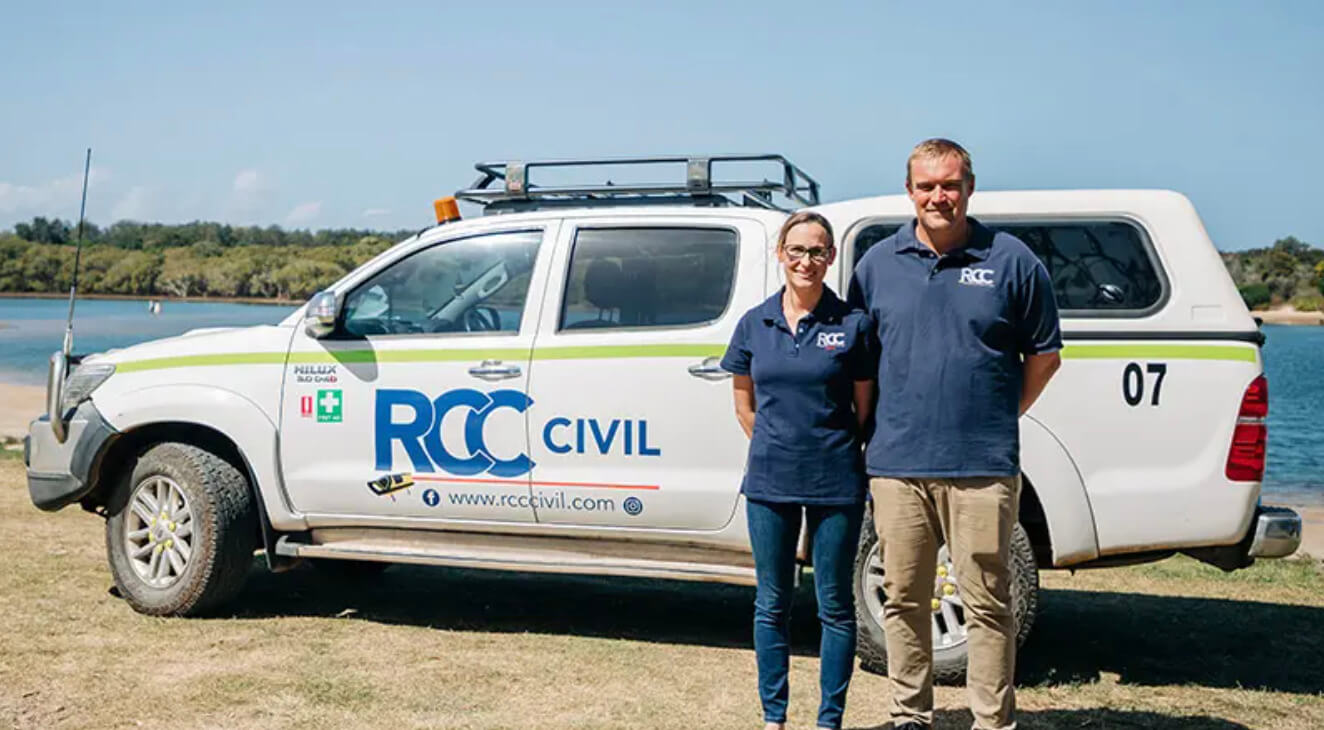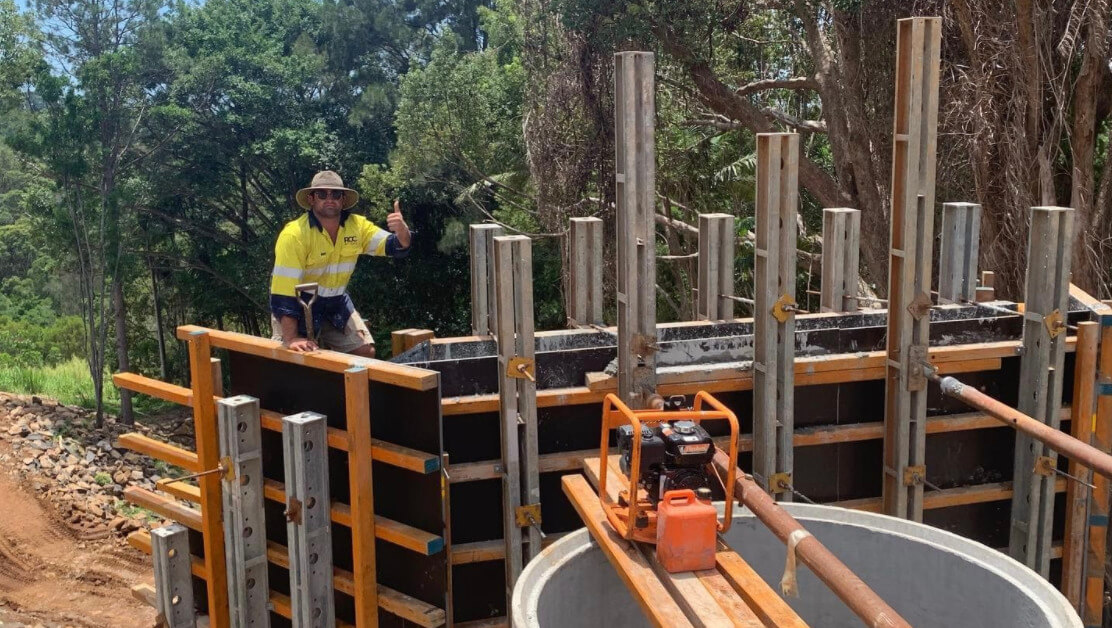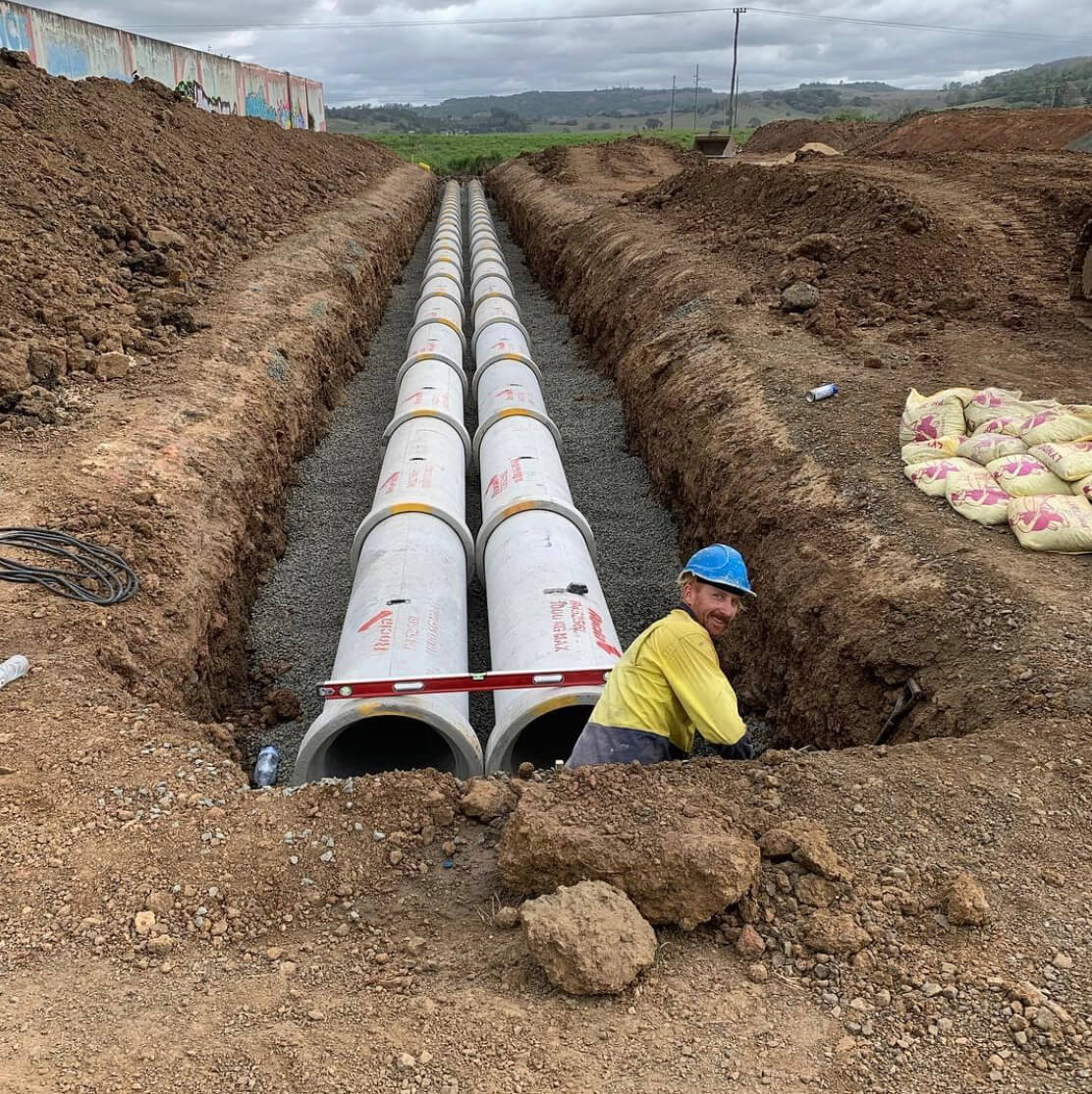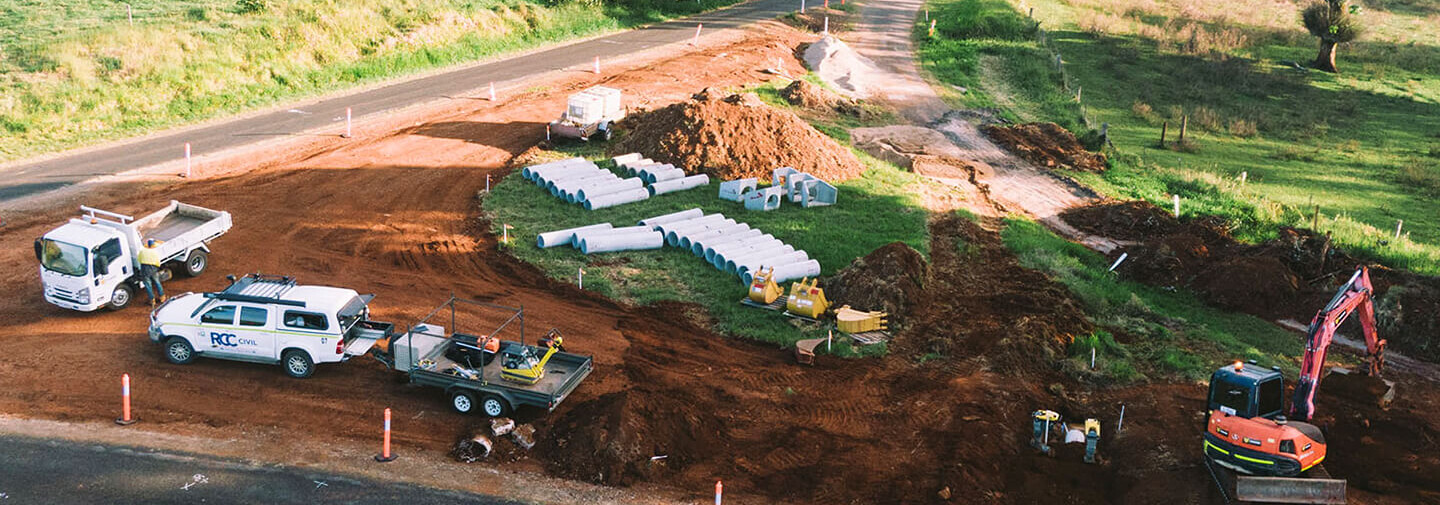RCC Civil is a privately owned, Earthmoving and Civil Construction Company with a reputation for quality project delivery and environmental integrity. Established in 2016 through a collaboration of industry specialists who found a gap in the integration process of the civil sector. RCC Civil provide superior services with their team of specialist workers who service South East QLD, Northern NSW. RCC Civil has worked on major projects such as The M1/M3 Highway upgrade and the hydraulics packages for Banyan Hills Estate. RCC Civil saw an opportunity to reduce administrative tasks by going digital whilst also adopting an operating system that would be their competitive advantage with up to date project transparency for all stakeholders. Belinda-Louise Hyett, Business Development Manager at RCC Civil shares the company’s journey from paper to digital.

Paper was our bread and butter
“We were originally a full paper-based company, where we would do paper timesheets and also our day diary on paper. We then moved on to digitalising our timesheets through a separate payroll system. That was good because it saved some admin time but we were still having the same trouble of trying to get the paper site diary to the office or to get the supervisors approval. So, we had logistic issues, we also had visual issues for when it was getting emailed and SMS through as we had to check whether the quality was good enough and things like that. Even though we were improving it was still a really, really long process to get wages approved and to record billable items or variations accurately so when it came time to claim nothing was overseen or missed. There was still a large amount of data entry being completed.”

Embracing digital technology
“We then came to Assignar and fell in love with the dockets and forms and we are using them all the time. Then we brought the men in to use the timesheets as well. We had a few hiccups as it was still always a little bit of a chase. It worked well but for us but getting it all in and then getting everyone to do it and then attach them to the docket was still a little bit clunky. It definitely was an improvement of what we were doing and then the site diary came along.”
“We started to fill out the site diary and took the onus away from the individual men back to the supervisor and it’s all flowing so much better now. So what the men do now, is look at night to check that their hours are correct. That’s their job. They don’t need to input anymore or anything like that. If there are any changes or anything separate, they do it themselves. If they know for some reason that their supervisor can’t do a site diary that day, they still do a timesheet and the supervisor adds it in like it is.”
“With regard to payroll, for us and for myself doing the wages, it has gone from a 3-day process in chasing things, getting emails and all the data entry to now 1 hour and 20 minutes.”
“For our company, it has been a major change and what else it has done is really empower the staff members. We have supervisors that now have a more clear role and they understand how much they have spent on subcontractors. That is another area that has been really beneficial to us, to track the subbies that we’ve got onsite and again paying them when their invoices come in. Our subbies have got timesheets and we put them into our site diary. It really is just super clear.”

The key to any hard change is persistence
Belinda from RCC Civil was recently asked on an Assignar webinar, what was the key to your successful implementation of Assignar at RCC Civil?
Belinda’s response, “Persistence, persistence, persistence. Two major things for our business is that I think that any change is hard for human nature, so it was really important that we were clear, that the staff were clear and capable which enabled them to be motivated about the change. We just expressed why we were making this change and continually expressed that it might be hard now but it will save you this much time and make this easier and really communicate all the benefits. What we did have to do is implement some staff members and nominate them as guides to help other staff members when there were little issues and things like that, especially when people aren’t used to using technology.”





